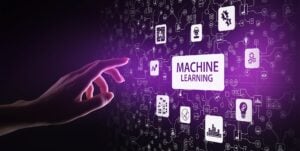Top 6 Machine Learning Books That Every Beginner and Expert Must Read

To become an expert in any field, one needs to develop a strong foundation in key areas related to that field. There are many resources, such as courses, books, and blogs, that help in building a solid foundation. However, good books allow programmers to learn at their pace. Moreover, they break down vast and complex topics into small fragments, making them easy to understand and remember. Therefore, as a programmer, you must read machine learning books.
If programmers want to learn about Machine Learning (ML), here are some books that will give them a deeper understanding of this branch of Artificial Intelligence (AI). These books are must-haves in every machine learning professional’s stack.
To make things easier for the learner, we have divided these machine learning books into two categories: books for beginners and books for experts. Moreover, all these books are about Python because it is a popular computer language and has powerful libraries like Pandas, TensorFlow, and Keras that make performing complex tasks easier.
Top Machine Learning Books for Beginners
For beginners who have just entered the field, machine learning books like Hands-On Machine Learning by Aurélien Géron, Machine Learning in Action by Peter Harrington, and Understanding Machine Learning: From Theory to Algorithm by Shai Shalev-Shwartz and Shai Ben-David are perfect for understanding the basics of machine learning, getting well-versed with different algorithms, and more.
Below, are the top three machine learning books for beginners that programmers must read at the onset of their careers.
1. Introduction to Machine Learning with Python by Andreas C. Müller and Sarah Guido
 Want to build a machine learning application from scratch? Introduction to Machine Learning with Python by Andreas C. Müller and Sarah Guido should be the ideal choice. This machine learning book teaches different ways of building a machine learning application using Python.
Want to build a machine learning application from scratch? Introduction to Machine Learning with Python by Andreas C. Müller and Sarah Guido should be the ideal choice. This machine learning book teaches different ways of building a machine learning application using Python.
The book starts by introducing the fundamentals of machine learning and slowly delves into more advanced topics such as deep learning, data processing, model tuning, and model deployment.
Note: Familiarity with NumPy and matplotlib libraries will make it easy for to navigate through the book and use these concepts in real life.
Why Should You Choose This Book?
This machine learning book includes a detailed explanation for each topic related to ML, AI, and data science. Moreover, the book includes many use cases of machine learning and examples of how to build an ML application from scratch.
Key Takeaways
- Fundamental concepts and applications of machine learning
- Advantages and shortcomings of popular machine learning algorithms
- Expert tips for improving machine learning and data science skills
2. The Hundred-Page Machine Learning Book by Andriy Burkov
As the title suggests, this book is a hundred-page guide to machine learning. It includes everything from common machine learning concepts to different types of ML, from basic machine learning algorithms to helpful tips for ML professionals.
A beginner in machine learning will find enough details in this book to have a basic understanding of the field and start asking the right questions.
Why Should You Choose This Book?
This machine learning book uses easy-to-understand language, making it suitable for non-technical professionals transitioning into data science and artificial intelligence. Moreover, it’s the perfect book for machine learning experts who want to brush up on the fundamentals of ML.
- Key TakeawaysFundamental algorithms
- Neural networks and deep learning
- Everything about supervised and unsupervised learning
3. Machine Learning for Absolute Beginners: A Plain English Introduction by Oliver Theobald
This machine learning book is a clear and concise replacement for a textbook, meaning the book takes a theoretical approach to machine learning. It begins with explaining common concepts associated with machine learning, such as artificial intelligence, data science, and big data, and then delving into concepts like regression, deep learning, neural networks, data reduction, clustering, and others.
Why Should You Choose This Book?
The plain-English explanation of the book makes it the absolute best for beginners or people with no coding experience. Moreover, clear explanations and visual examples make it easy to understand and remember complex concepts.
Key Takeaways
- Different concepts related to machine learning, big data, and analytics.
- Concepts like regression analysis, decision trees, and cross-validation.
- Common machine learning libraries and tools required for data analysis and other processes
- How to build the first machine learning model
Top Machine Learning Books for Experts
Machine Learning: The Art and Science of Algorithms that Make Sense of Data by Peter Flach, Deep Learning by Ian Goodfellow, Yoshua Bengio and Aaron Courville, and Machine Learning: A Probabilistic Perspective by Kevin P. Murphy are some of the best machine learning books for experts to provide them hands-on guidance and training in building machine learning models.
Below, we have listed the top three machine learning books for experts that must be read to become an authority in the field of data science.
1. Deep Learning with Python by François Chollet
This book provides a comprehensive view of deep learning, a branch of machine learning that imitates the human brain. The concept of deep learning has been around for decades, but it has come to the forefront in the past few years. Today, companies use it for image classification, speech recognition, text-to-speech conversion, and text classification.
deep learning has been around for decades, but it has come to the forefront in the past few years. Today, companies use it for image classification, speech recognition, text-to-speech conversion, and text classification.
Machine learning experts planning to specialize in deep learning can use Deep Learning with Python to understand the concept well and use it in real-life applications. This machine learning book has one of the clearest explanations of deep understanding.
Why Should You Choose This Book?
This book introduces the field of deep learning using Python and Keras library, making it hard to miss for ML experts who want to specialize in deep learning. Moreover, the book is written by François Chollet, the creator of the Keras deep learning library.
Furthermore, the book explains deep learning naturally and offers the best practical examples to explain key concepts.
Key Takeaways
- Deep learning techniques and Python codes
- Deep knowledge of computer vision, natural language processing, and generative models
- Practical examples of different deep learning models
2. Pattern Recognition and Machine Learning by Christopher M. Bishop
This machine learning book focuses on the practical aspects of machine learning and pattern recognition. It teaches ML experts ways of using statistical techniques in machine learning and pattern recognition. The book leverages graphical models in a unique way to explain difficult concepts.
Why Should You Choose This Book?
If a professional has a basic understanding of multivariate calculus, basic linear algebra, data science, and other probability theories, taking this course will enhance their knowledge.
Key Takeaways
- Bayesian methods
- Introduction to basic probability theory
- Approximate inference algorithms
- Introduction to pattern recognition and machine learning
3. Machine Learning: A Probabilistic Perspective by Kevin P. Murphy
This book offers a comprehensive introduction to the field of machine learning based on a probabilistic and unified approach. The book covers subjects like probability, optimization, and linear algebra. It also discusses recent development in the field of data science.
Why Should You Choose This Book?
The book is written in an informal style, making it easier for users to understand complex concepts. Moreover, all the topics in this book are explained thoroughly using infographics and visual representation, making it an interesting read.
Key Takeaways
- Deep learning
- Probability
- Linear algebra
- Conditional random fields
The rise of automation and leaps in cloud computing, big data, and artificial intelligence have accelerated the future of work for professionals with AI-specialised degrees like machine learning and deep learning.
Furthermore, it has also increased the reskilling and upskilling of the current workforce. If you are someone trying to build a strong foundation in AI or ML, explore our AI & ML Certificate Courses.
Emeritus offers various artificial intelligence and machine learning courses in association with reputed institutes like IIM, IIT, and ISB. Our programs are designed for fresh graduates and experienced professionals looking to lead end-to-end ML and AI projects and make a significant impact in an organization.





